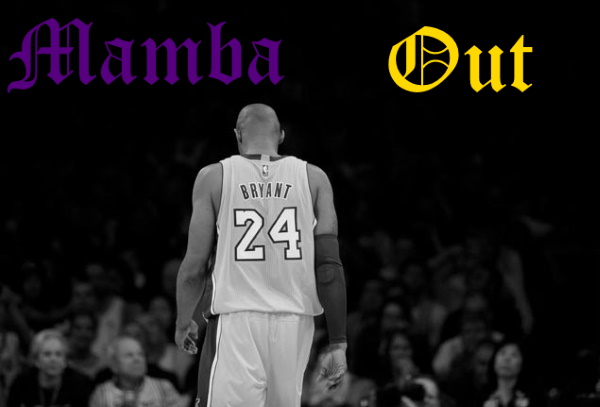Film critics once occupied a place of honor. During the 1970’s, a rave review from the likes of Pauline Kael could shed much-needed light on a worthy, yet overlooked film. It might not always translate into box office success, but it could go a long way in deciding how a particular film or filmmaker is regarded by his/her peers. Decades later, the blogosphere has largely bastardized the art of film criticism. The web is bursting at the seams with opinions, both informed and uninformed alike.
Major studios and independent filmmakers can now court the consumer more directly than ever before. This development has all but negated the necessity of a respected connoisseur’s blessing. In such an atmosphere, film critics are not only outmoded, but insufferable snobs who serve no purpose other than to irritate general audiences. Does such a voice have a place in today’s art and entertainment landscape? If so, should that voice be stifled by the stringent guidelines of political correctness?
There is a school of thought that pits film critics against the paying consumer, drafting critics as elitists. Conventional wisdom would have you think that by definition, the tastes of critics always run counter to that of the general public. However, even a cursory glance at popular review aggregator sites like Rotten Tomatoes and Metacritic tell a different story. Quite a few populist films have been widely embraced by film critics. Recent all-time box office hits like like Toy Story III, The Dark Knight, Spider-Man 2, and The Lord of the Rings trilogy have all enjoyed universal acclaim from reviewers. Ditto for various entries in the Harry Potter franchise. Then there are the hits that received high marks from the majority, if not across the board raves: Avatar (Currently the highest grossing film of all time), Inception, Batman Begins, Iron Man, and Rise of the Planet of the Apes. The deeper one goes, the longer the list gets. Even Tyler Perry’s I Can Do Bad All By Myself managed to score a positive rating on Rotten Tomatoes (If just barely). It seems that today’s critics are in tune with public sentiment much more often than many of us care to admit.
That myth persists largely due to another interesting phenomenon. The prevalence of fanboy culture in the wake of Star Wars and Star Trek has created a symbiotic relationship of sorts. Hardcore fans often see themselves as one and the same with the properties they identify with, taking any criticism or dismissal of said property as a personal affront. Surprisingly, even casual moviegoers sometimes exhibit similar sympathy pangs. Tyler Perry fans defend their icon by branding his critics as racists and house n***rs. Al Sharpton’s recent dismissal of Tyler Perry detractors as “proper negroes” is an example of this.
The inability to separate the art from the artist, or either from their respective fanbase, leads to a sense of entitlement. Many people feel that critics have a civic duty to reflect popular sentiments and validate the ever-changing tastes of the public. The uncomfortable truth about any form of artistic critique or commentary is that in order to effectively make a point, a writer may sometimes have to offend someone. Lots of films that become hits are, in fact, quite bad. They cater to the lowest common denominator, and often appeal to the public’s worst instincts. That the public is so complicit in making these films hits and ensuring that more of them get made is evident. Is a critic who points this out a condescending snob, or is he simply speaking an inconvenient truth?
Labels such as snob, elitist and the like are often misapplied in today’s world. They handily brand anyone who doesn’t conform to populist opinions or conventional wisdom. It’s not a critic’s job to alienate, but it’s also not a critic’s duty to pander and patronize. A critic’s ultimate duty is to evaluate a given work. That evaluation should offer insight, analysis, and cultural/political perspective. It should also be tempered with consideration for good old fashioned entertainment value. Something made for mass consumption is neither beyond reproach nor completely subjective. On the contrary, massively consumed works are subject to any and all levels of scrutiny, from extremely superficial to painstakingly minute. At the end of the day, all opinions deserve to be voiced. That extends to critics as well as the general public.
Follow Malice Intended on Twitter @ http://twitter.com/renaissance1977
Follow Us on Twitter @ http://twitter.com/planetill
Join Us on the Planet Ill Facebook Group for more discussion
Follow us on Networked Blog






Gee, you sound like a snob yourself. Oh, I’m sorry, is that misapplied here? You have to forgive me if I don’t believe your tripe about Critics speaking truths of any kind. But you know, your article was full of nice insightful, baloney, and garbage. I think the scrutiny is the scrutiny we should shine at critics, movie critics, lets scrutinize them. Stuck up, intellectual snobs who get paid to dish out the criticism and the negativity and maybe just maybe they do dish out some of it fairly. But most of the time, no. It all sucks, the movie critics suck. Down with them and their ilk, we should stop listening because they aren’t worth a dime of our time.